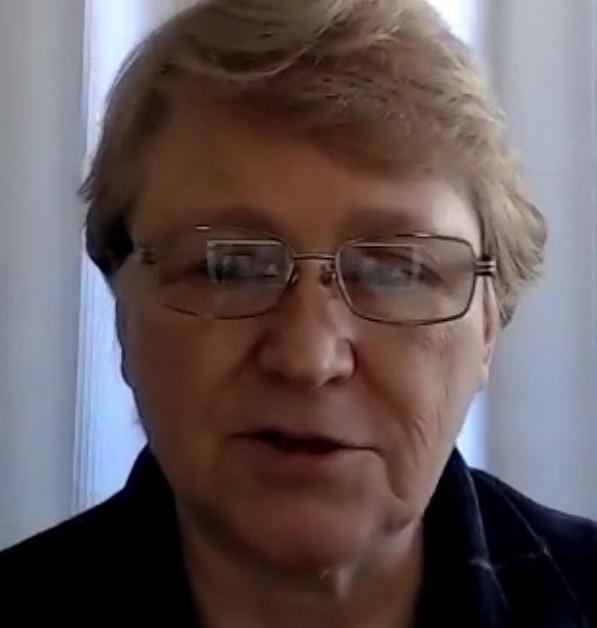France Says Russian Intelligence Or Leftist Activists Key Suspects In Olympic Railway Arson Attack https://www.infowars.com/posts/france-says-russian-intelligence-or-leftist-activists-key-suspects-in-olympic-railway-arson-attack/
Circles
Posts

An Australian citizen was raped by “five African-type individuals” during her vacation in Paris, with the woman taking refuge in a restaurant after the ordeal on the night of Saturday into Sunday. At 5:00 a.m., the 25-year-old woman, who was under the influence of alcohol, entered a kebab shop in the 18th arrondissement, located on […]
rmx.news
Videos
In this episode of Direct Impact, Rick Sanchez discusses several key issues from the week with political scientist and co-host of “The Critical Hour” on Radio Sputnik, Dr. Wilmer Leon. The show touches on Joe Biden’s most recent public blunders and the ensuing media and political fallout. Additionally, they analyze the political upheaval in France, where Marine Le Pen’s National Rally has made significant gains against Emmanuel Macron. Finally, the episode touches on Boeing’s ongoing troubles, including recent issues with their private space ventures.
In this episode of ‘Direct Impact,’ host Rick Sanchez discusses President Joe Biden’s troubling debate performance, comparing it to the tough choices families face with aging parents, alongside the controversial cancelation of primaries. We’ll also cover the media’s evolving stance on Biden’s capability. Additionally, we’ll examine the political shift in France as Marine Le Pen’s National Rally gains momentum against President Macron’s policies, and look into Iran’s significant election following President Raisi’s death, with expert analysis from Mohammad Marandi.
In this newscast, Rick Sanchez discusses the political challenges faced by Emmanuel Macron in France, noting widespread discontent and the rising popularity of Marine Le Pen ahead of parliamentary elections. Shifting focus to the US, Sanchez critiques President Biden’s apparent struggles with his mental capacity. Finally, Rick is joined by Sarah Bils, co-founder of DD Geopolitics, to discuss Western leaders and their historic meddling across the globe.
Circles
Videos
In this episode of Direct Impact, Rick Sanchez discusses several key issues from the week with political scientist and co-host of “The Critical Hour” on Radio Sputnik, Dr. Wilmer Leon. The show touches on Joe Biden’s most recent public blunders and the ensuing media and political fallout. Additionally, they analyze the political upheaval in France, where Marine Le Pen’s National Rally has made significant gains against Emmanuel Macron. Finally, the episode touches on Boeing’s ongoing troubles, including recent issues with their private space ventures.
In this episode of ‘Direct Impact,’ host Rick Sanchez discusses President Joe Biden’s troubling debate performance, comparing it to the tough choices families face with aging parents, alongside the controversial cancelation of primaries. We’ll also cover the media’s evolving stance on Biden’s capability. Additionally, we’ll examine the political shift in France as Marine Le Pen’s National Rally gains momentum against President Macron’s policies, and look into Iran’s significant election following President Raisi’s death, with expert analysis from Mohammad Marandi.
In this newscast, Rick Sanchez discusses the political challenges faced by Emmanuel Macron in France, noting widespread discontent and the rising popularity of Marine Le Pen ahead of parliamentary elections. Shifting focus to the US, Sanchez critiques President Biden’s apparent struggles with his mental capacity. Finally, Rick is joined by Sarah Bils, co-founder of DD Geopolitics, to discuss Western leaders and their historic meddling across the globe.
In this episode of Direct Impact, Rick Sanchez discusses the escalating tensions between the US, its NATO allies, and Russia, following a controversial decision by the US, Germany, and France to provide Ukraine with missiles capable of striking deep inside Russian territory. Plus, the show highlights Russia’s strategic military maneuvers in Cuba, drawing historical parallels to the Cuban Missile Crisis. The episode concludes with an interview with Professor Francis Anthony Boyle, who links NATO’s actions to the conflict in Ukraine.
On this episode of Direct Impact, Rick Sanchez and correspondent Manila Chan take a look at a recent bust in India uncovering corruption to the amount of $35 million! What does this level of corruption mean for the future of Modi’s government? Then, Macron meets with Xi Jinping in Paris to make a series of awkward pleas for China to abandon its growing partnership with Russia. And then ongoing protests throughout the United States over the Gaza–Israel conflict spark widely varying reactions from the right and the left. Author and East Asia expert KJ Noh joins Rick for all of this and more. Don’t miss it!
Posts
France Says Russian Intelligence Or Leftist Activists Key Suspects In Olympic Railway Arson Attack https://www.infowars.com/posts/france-says-russian-intelligence-or-leftist-activists-key-suspects-in-olympic-railway-arson-attack/

An Australian citizen was raped by “five African-type individuals” during her vacation in Paris, with the woman taking refuge in a restaurant after the ordeal on the night of Saturday into Sunday. At 5:00 a.m., the 25-year-old woman, who was under the influence of alcohol, entered a kebab shop in the 18th arrondissement, located on […]
rmx.news
International Public Notice: The Election Shuffle
By Anna Von Reitz
We have already explained how an election can be stolen in this country without any traction to prosecute the Perpetrators.
The particular "Presidential Elections" under examination are only public opinion "elections" -- a straw vote attesting to the popularity or unpopularity of the candidate, having no guaranteed effect on the actual election of the Corporation President(s), a matter which is always determined by the Electors of the Electoral College --- who are Proxies of the Shareholders of the United States, Inc., and United States of America, Inc., who are largely Europeans.
While it is immoral and dishonest to mess with the results of a popular opinion poll such as those sponsored by the political parties (lobbies) in this country and which are foisted on the American Public as "Presidential Elections" --- of a kind -- we can find no law against it.
So, all of Donald Trump's accusations and complaints and arguments about the interference in the 2020 Election are probably God's Honest Truth --- but it continues not to matter, because there is no law against stealing a straw poll election and proof that this data manipulation impacted the votes of the Electors (in the actual Electoral College Election) have not been forthcoming.
It is glaringly obvious that Joe Biden spent most of the last campaign in the basement somewhere, didn't really campaign, avoided as much public exposure as possible (probably because his handlers already knew he was having cognitive problems) and was never so wildly popular as the skewed election results pretended.
The Liars made the mistake of overdoing it, like a little kid who starts out with a plausible story, and then embroiders it too much, the (Popular) Election Thieves had Joe Biden "winning" by a completely and wildly implausible margin given Donald Trump's economic record.
Which brings up the perennial question, "Why are you stupid Americans beating on Donald Trump? He created an economic miracle for you!"
As you see, it wasn't Americans who elected Joe Biden. It was largely European shareholders, and European shareholders have other investments --- like investments in China and Germany that compete with their investments here. They don't necessarily want America to be economically, socially, or educationally superior.
The actual Electors wanted Joe Biden in office, knowing that he would damage and reduce America's economic capacity and undo everything that Donald Trump did ----and thereby lessen competition for their other investments.
Just like the so-called Civil War scenario, where Great Britain, Inc., invested heavily in Egyptian cotton, thinking that they could displace American cotton. As competitors in the cotton market, they naturally wanted to undercut American cotton production and increase the labor costs of the American plantation owners for purely commercial reasons.
Abolition of slavery became their rallying cry --- not because they objected to slavery whenever they were the slave owners --- but because it was a politically potent weapon they could use to get a conflict started.
They achieved their actual goal, which was to reduce our cotton production and increase the expense of whatever cotton we did produce --- and hid it behind a smokescreen of public sentiment against the evils of slavery.
Their entirely self-interested and cynical manipulation is revealed by how quickly Parliament amended the Naval Agency and Dispositions Act of 1864 to allow King's Bench operations in this country, and also how quickly they "conferred" enemy citizenship obligations on the innocent former plantation slaves, using their "Territorial" Congress and Southern Democrats to do the dirty work.
The Civil War was about cotton prices, not slavery, but none of the history books commented on that. You have to read the boring, Committee Minutes of the British Parliament in the late 1850's and who is going to be motivated enough to do that?
A moment of silence for our researchers, then and now.
In the same way, the current day Monsters in Tweeds are ginning up all these stories about space aliens and exotic blood-thirsty religious cults as a smokescreen to cover the fact that they were themselves engaged in peddling one of the most infamous drugs in human history --- adrenochrome.
We needn't be surprised. The same characters were the primary perpetrators, developers, pushers, and beneficiaries of the infamous Opium Trade.
The importance and meaning of Gandhi's March to the Sea has been equally obscured; the Brits hoped to make salt a very, very valuable ---indeed, life saving-- commodity throughout the Indian Subcontinent, just as it was in Roman times in Europe.
Here, they simply kill us in the name of protecting us, and charge the survivors for the "service".
It isn't to Britain's advantage to have a strong America, now that they think they have found a source of even cheaper mercenaries and factory labor in China.
All of this rot, all the wars, all the misery, all the lies, come down to Britain and the heirs of the British East India Company and the Dutch East India Company commingling together like a ball of snakes for 300 years.
These are old European evils that our ancestors came here to escape, but as everyone can now see, they piggy-backed along like fleas and infected the New World with the same diabolical and small minded, grasping, dishonest and selfish consumer mentality that afflicted the Old World.
The coercive and destructive lust for political power came along for the ride.
The Electors marching off to cast their votes via the Electoral College are never going to elect Trump, which means that the White Hats, to the extent that they exist, are in a bit of a tizzy. The continuing schism between the US, Inc. and the USA, Inc. may be just for show, but it makes the 2024 Election Shuffle dicey, especially because the Americans finally woke up and realize that it's all just a fraud anyway, top to bottom and front to back.
This isn't a story about the Dems and Fabians stealing the popular election results of the 2020 Election. This is a story about cynical criminals who have misled the American people to think that their votes count, that these private corporate political elections are public elections, and that the "Presidents" of the United States (Incorporated) and the United States of America (Incorporated) are the same as and hold the same presidential offices as their unincorporated American counterparts --- when they don't.
In our opinion, there should be no 2024 elections. It just results in more fraud and more misunderstandings and increasingly dangerous situations.
Both Donald Trump and Ms. Harris should be brought to Philadelphia for a Come-to-Jesus Meeting with the actual American Government; their respective corporations should get back to work within the limitations of their actual contracts; our credit-based financial system should be put in place without delay, and the truth --- the actual truth --- should be told to the American people.
In the midst of all this complete and utter hokum and despite the fine performances of those who are ignorant and those who pretend to be ignorant, discerning Americans have noticed something very peculiar.
While everything in American supermarkets now costs more, it is also coming from vastly different sources---- mostly Continental European sources. We are eating Irish butter and Italian pasta from the Old Countries, cookies from France --- the entire palate of consumer choices has been changed almost overnight, so that we are faced with new brands of nearly everything and American brands are disappearing, too, as if we are obligated now to eat food imported from the European Union and no longer know how to milk our own cows.
Like the change in governmental services administration, the European Union products are flooding the market and cost three or four times more than local products or products imported from South America. This change is being forced on us using subtle and not-so-subtle means --- like the senseless culling of millions of American chickens and destruction of American food canning facilities, slaughterhouses, and grain silos.
We don't need any more lies, any more Hollywood, any more fakery or any more fraud from anyone about anything, and that includes, but is not limited to substituted "presidential" elections and the reasons that European products are suddenly flooding what should be protected national markets.
Remember how the Brits used the moral issue of slavery as the means to undercut our cotton market and create a war-for-profit for themselves? Good. Now remember how they bilked the Chinese factory workers to undercut American workers. Remember how they have undercut American farmers to facilitate their land grabs.
And get angry. Very angry. But, when we say this, we mean --- get angry in a cold and calculating and determined way that does not waiver or get lost in the Land of Oz. No breast-beating. No victimhood. No stalking around talking about guns in the middle of the night.
We have guns. We know how to use them, but so what? We have no intention of fighting another Revolution to win what we have already won, what is legitimately and only ours, and what these false-hearted con artists owe us -- returned unharmed.
Remember that this is not about the causes of war or defending our country, as much as it is about knowing who we are, knowing the American Way of doing things, and doing it.
Let your commitment to fairness and compassion extend to everyone, while we continue to bear down on the actual criminals among us.
Issued by:
Anna Maria Riezinger, Fiduciary
The United States of America
In care of: Box 520994
Big Lake, Alaska 99652
July 24th 2024
----------------------------
See this article and over 4900 others on Anna's website here: www.annavonreitz.com
https://tasa.americanstatenationals.org/correct-your-status/
https://global528.com/
The Air France Helsinki Office provides travelers with all-inclusive help and professional direction to ensure smooth travels. Learn about specialized services, booking, reservations, and assistance for questions about flights and travel plans. Your experience with Air France is improved by the individualized customer service that our Helsinki team offers. Whether you're in need of support, information, or to book a flight, our office is dedicated to providing quality and convenience. For all of your travel requirements, including seamless transfers and pleasurable international travel, get in touch with Air France Helsinki.
visit us : https://airlinesofficeinfo.com/offices/air-france-helsinki-office-in-finland/














